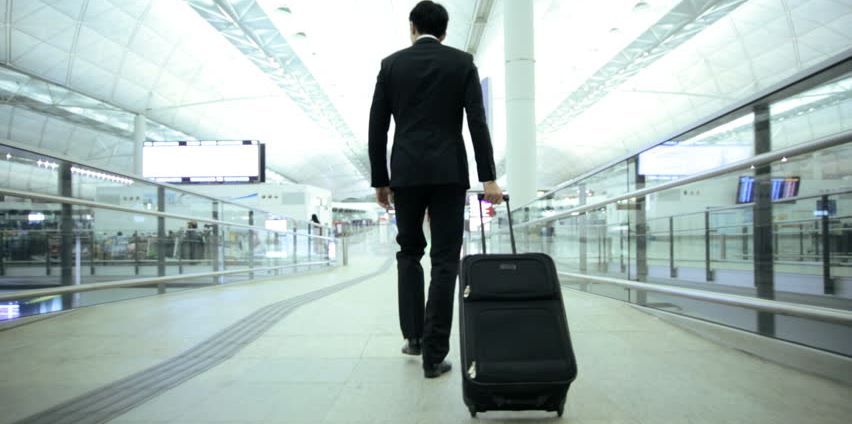
Travelling around the globe on a plane is fun in most cases. However, it can be a completely different story if you’re flying across multiple time zones due to a condition called ‘jet lag’. The most popular reactions we get from people who have been on long-haul flights between multiple time zones ranges from, ‘pretty tiresome’ to ‘it was horribly nauseating’. Why?
Because, even if you can turn the dial of your watch from 6 to 9, your body doesn’t adjust so easily with the new clock. Our body wasn’t primarily designed to travel a long distance in such a short duration, so it needs time to get out of the state of ‘confusion’ and ‘havoc’. Your body may tell you to sleep when you should be awake and to be awake when you should be sleeping. The entire rhythm of the body seems to be out of place, and that’s exactly what jet lag is!
So, if you’re traversing multiple time zones, even though you can’t avoid having a jet lag, here are some easy steps to work your way around it and reset your body clock!
-
Get enough rest the night/day before you travel

Most people end up not sleeping enough before their travel, and the reasons could either be their pre-trip excitement or trying to wear themselves out to help them sleep through the flight. Either way, it tends to work against you, as you’ll face an even bigger problem adjusting to the new time zone. Instead, have a good rest before taking off, so that you can avoid being completely exhausted once you reach your destination.
-
Adjust your schedules to the new time zone even before you board the flight

It’s always better to start adjusting to the new time schedule at least two or three days before your flight, rather than trying to adjust once you reach your destination. Relax your schedule at home and at work for the last two days before the flight, pack your bag a couple of days in advance, and avoid any last minute jitters; this goes a long way in preventing any post-flight fatigue.
-
Alter your food routine to the new clock a couple of days before your journey

If you have a strict food routine, the biggest problem you’re going to face is, your body behaving in a rather perplexed way when it comes to the eating schedules. In order to avoid this, try bridging the gap between your eating time and the food timings in the place you’re travelling to. This should be done at least two or three days before the flight so that your body gets acclimatized to the new timings. Follow the same step when you return back home if you need to hit the ground running.
-
Have an important meeting/conference? Start a day early

More often than not, experienced business travellers, who need to attend important meetings or conferences in a different time zone, arrive a day early to avoid being sick or exhausted on the day of their important meeting. It also gives ample time to adapt your body to the new time zone.
-
Choose your arrival time wisely

Experts say that it is best to schedule a flight that arrives in the daytime. This way, you can get enough of the daylight to keep you awake even if you feel sleepy and then guarantee yourself a sound sleep at night. On the other hand, if you arrive at night, chances are that you’ll either be up all night or sleep very late, rendering your next day worthless or tiring.
-
Make a big trip into two small chunks with a stopover

If you’re making a big trip, try converting your journey into two small trips by booking a multi-stop flight. The obvious advantage is that you will get cheaper deals. But there’s another advantage to it — you can book a stopover en route to your final destination. This allows you to hop off the flight, visit the new place where you’ve landed, and get some rest during the permitted time before your next flight.
-
Avoid sleeping pills

Sleeping pills may get you a much-needed sleep if you’re suffering from insomnia. However, if you don’t have any problems with your sleep, avoid sleeping pills. It doesn’t prevent jet lags, and leaves you quite dizzy and lightheaded after the sleep, making your condition much worse. Try some natural ways to shut your eyes through the flight, such as scoring a window seat and leaning against it or bringing some sleeping aid with you.
-
Say ‘no’ to alcohol & coffee the day before your flight

If you booze regularly, try not to do so before your flight. While the soporific effects of alcohol are well known, it is not a good idea on a flight journey due to the risk of dehydration and tiredness. Jet lag is inevitable, but boozing just makes things even more unpleasant. The same applies to all caffeinated drinks too, including coffee, cola, or other beverages.
-
Drink more water

One of the best freebies that you get in a flight is unlimited water, both hot and cold. The more water you drink, the better your shape will be after the flight. Not only does water keep you hydrated but also helps you recover from jet lag faster.
-
Fly business class

While this particular step is disputable, the idea is to make your flights as easy and comfortable as it can. As opposed to the seats in the economy class, the seats are much wider and have deeper reclines in the business class, which dramatically improves your sleep.
That said, oftentimes we may be left with no choice, but to travel in the economy class. However, practice all these other steps and you will suffer less. Remember to take it slow and give your body enough time to adjust to your new routine. This way, you can guarantee an enjoyable vacation starting from day one!











